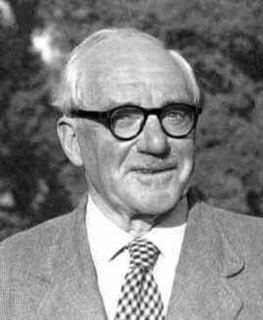A Quote by Rick Warren
Longing for the ideal while criticizing the real is evidence of immaturity. On the other hand, settling for the real without striving for the ideal is complacency. Maturity is living with the tension.
Related Quotes
We have on the one hand a desperate need; hunger, sickness, and the dread of war. We have, on the other, the conception of something that might meet it: omnicompetent global technocracy. Are not these the ideal opportunity for enslavement? This is how it has entered before; a desperate need (real or apparent) in the one party, a power (real or apparent) to relieve it, in the other.
It is sometimes said that the tragedy of an artist's life is that he cannot realise his ideal. But the true tragedy that dogs the steps of most artists is that they realise their ideal too absolutely. For, when the ideal is realised, it is robbed of its wonder and its mystery, and becomes simply a new starting-point for an ideal that is other than itself.
All the controversialists who have become conscious of the real issue are already saying of our ideal exactly what used to be said of the Socialists' ideal. They are saying that private property is too ideal not to be impossible. They are saying that private enterprise is too good to be true. They are saying that the idea of ordinary men owning ordinary possessions is against the laws of political economy and requires an alteration in human nature.
God loves human beings. God loves the world. Not an ideal human, but human beings as they are; not an ideal world, but the real world. What we find repulsive in their opposition to God, what we shrink back from with pain and hostility, namely, real human beings, the real world, this is for God the ground of unfathomable love.
We come finally, however, to the relation of the ideal theory to real world, or "real" probability. If he is consistent a man of the mathematical school washes his hands of applications. To someone who wants them he would say that the ideal system runs parallel to the usual theory: "If this is what you want, try it: it is not my business to justify application of the system; that can only be done by philosophizing; I am a mathematician". In practice he is apt to say: "try this; if it works that will justify it".


































